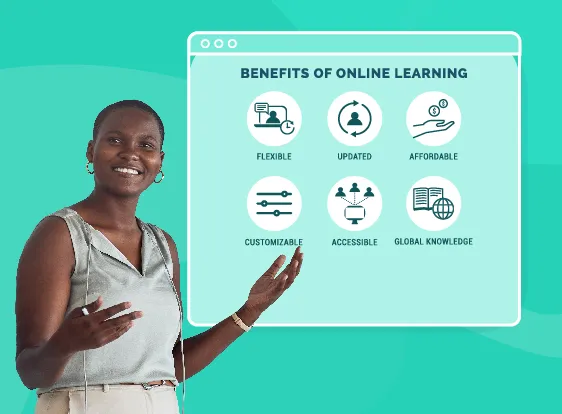In a fast-paced world with constant product changes and service updates, you need a sales team that is constantly updated and ready to sell your products and services to the masses. Building high value custom sales eLearning courses is one way to keep your sales teams updated. If you’re interested in building sales training courses that are designed around your products and services keeping your sales teams in mind, reach out to us.
Custom eLearning for Sales Training
Online sales training presented in an eLearning format is a steadily growing business. Today, more sales professionals are accessing paid and free online eLearning courses to upskill themselves than ever before. As organizations see the existing demand for such courses increase, more of them have started offering online sales training and eLearning courses free of cost to their employees.
Sales is a process that deals with dynamic variables such as changing products and services, customers, regions, and preferences and two important tools in the bag of every sales professional are access to regular training and access to easily available information.
Exposure to new concepts of selling, improved negotiation skills, and ease in highlighting the benefits of a product or service are the primary skills every salesperson needs coupled with readily available information. Traditional sales training relies heavily on a trainer-trainee scenario. Here, a trainer engages a group of learners to conduct the training. Post training, there is no real way to assess learners. However, eLearning makes sales training both dynamic and engaging with complete scope for tracking and assessing the progress of learners. As a result, more companies are actively choosing custom eLearning courses for sales training.
eLearning allows your organization to create engaging sales courses with active assessments where individuals can record their answers and trainers can evaluate these answers on a one-on-one basis. Recording answers is an advanced format of reply submissions.
eLearning for Sales Training Tips and Use Cases
WHY CHOOSE ELEARNING FOR SALES TRAINING?
HOW DOES ENYOTA’S ELEARNING COURSES FOR SALES TRAINING HELP TRAIN YOUR SALES FORCE?.
We design highly customized and modern eLearning courses for sales training. Switch to eLearning today!





